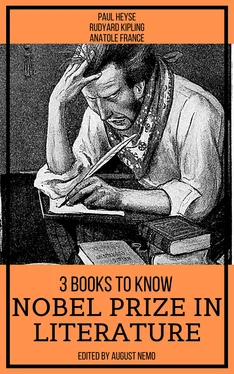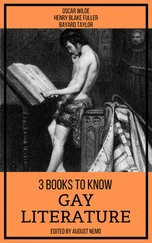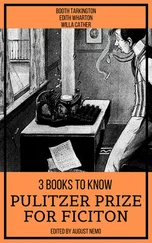"You mean a contented heart?"
"Heaven forbid, my dear friend! It should be a very much spoiled, exacting heart; do you suppose, for instance, mine would take a predilection so easily? But it will not matter if the heart is needy and rich at the same time—that wonderfully contradictory condition called love, when we know not which is most blessed, to give or to receive, where we are never satisfied with giving and receiving, and in this absurdly delightful and nonsensically clever occupation, have no time to consider the rest of earthly things, plush furniture or wooden chairs, because the whole question of wealth or poverty has been transferred to another province."
He relapsed into silence, and eagerly watched the effect of his words. Her tears had ceased to flow, and she was gazing absently and dreamily into vacancy.
"I don't understand you, and you can't understand me," she answered with a scornful shake of the head. "How often must I tell you, that I've no talent for what you call 'love!' As in this present world, both in reality and romance, everything seems to turn upon it as a pivot, you must easily understand, that I do not suit such a world. No, things can't go on so, long. And really, if I were not so cowardly, and did not fear pain—but that will, always restrain me until life becomes still more unendurable, and the feeling of loneliness and desolation at last increases to a physical anguish keener than all other."
He rose and took her hand. "Dear Toinette, you're in a morbid, over-excited state, and must allow your friend to cure you. Will you trust yourself to me? You shall not swallow any bitter draught, or have your heart cut out, that we may see what this obstinate little muscle wants ere it can do its duty like a thousand others. I'll show you a little of the world, teach you how it is constituted on an average and how men bear with each other and till the void of which you complain, on week-days and holidays. To-morrow will be Sunday. I should think we might do like nine-tenths of our fellow citizens, and take advantage of the fine weather for a little excursion into the country.
"Willingly. But where shall we go?"
"That's my affair. I must beg you to leave the whole arrangement to me. Fortunately you have dismissed your carriage, so you will leave the striped waistcoat at home."
"Poor boy! Why don't you give him a share in the pleasure?"
"Because private tutors are not able to go out to amuse themselves with a train of attendants. I'll persuade my brother to accompany us instead. I hope you don't object."
"I! Didn't I tell you long ago, how curious I've always been to see what kind of a brother you have."
"You'll make the acquaintance of a very charming young fellow, and I warn you in advance, do not allow it to be too evident that you like him much better than your pedantic friend. With all my brotherly love, I won't answer for it that I should not feel a certain degree of jealousy. But many things which you think 'wise' and don't understand in me, will perhaps become clearer when you've seen a man like Balder. By the bye, you'll not wear a very magnificent dress? I hope to show you that the fewer ducal pretensions people make, the more royally they can amuse themselves."
She smiled. "You're a good man, to take so much trouble about a poor, incurable creature. Do whatever you choose, you shall have unlimited authority to improve me as much as you can."
"To-morrow morning at ten, then! Farewell, most august friend."
"You're graciously dismissed, worthy friend and marshal of the royal household." With a bow of mock condescension, she gave him her hand, which he raised to his lips with smiling reverence.
"And until to-morrow morning, neither poison nor dagger!" he cried on reaching the doorway, shaking his finger.
"I'll hold out until then," she answered gaily. "Out of curiosity to see your brother."
––––––––
"It's true! Rinaldo is in the old chains again!" exclaimed Edwin, as he entered the room where Balder sat alone, sunning himself in the window. He was apparently unoccupied, for he had hastily locked up the volume in which he had been writing verses, when he heard Edwin's step in the courtyard below, nevertheless the reflection of his poetic dreams still lingered in his eyes.
"Have you found her?" he asked. "How did she appear?"
"Exactly as usual, neither cordial nor repellant. Oh! child, if you could but solve this problem! How can one long for grapes, which not only hang too high, but are after all merely painted. If, in the moon, there live creatures resembling men, who breath a special atmosphere, and have in their veins some vital ichor different from our blood, they may appear like this girl. Something of the true woman is lacking, and yet she possesses everything that hundreds of others need to attain the full meaning of womanhood. My brain aches with trying to understand the mystery."
He threw himself into a chair before the table, now set for dinner, and drank a glass of water.
"And shall you go to her every day as before?" asked Balder sadly.
"As long as I can hold out. As long as it lasts. For I fear she will ultimately become such a mystery to herself, that she will commit some mad act. I proposed to cure her, to make life dear to her, to transform Mephistopheles, 'first of all I must bring her into better company.' But I don't imagine I shall succeed in finding a life purpose for her, a task which will really warm her heart, fill her days, and of which she can dream at night. Ah! if she only had a brain like that of my little hedge princess Leah! But that's the strangest thing of all: she's clever and yet entirely without any craving for knowledge; without prejudices and perfectly indifferent to the opinions of others, kind hearted without any interest in mankind; gay without being contented, bright without being warm—and I, as a punishment for my sins, am condemned to lavish as much heart's blood upon this strange specimen of her sex, as if I were attempting a moral transfusion, instead of the physical one that has long been tried. You'll see, child: when I've once succeeded in replacing the moon-lymph in her veins with warm, earthly human blood, the first dandy that comes along will reap the advantage, and I shall have to pocket the disappointment. However, perhaps your clairvoyant eyes will solve the enigma more easily than I."
"I—how should I—?"
"I promised to take her into the country to-morrow and to bring you with me. She's very anxious to make your acquaintance."
"You're joking, Edwin."
"Not at all. I should like to know what impression she makes upon perfectly unprejudiced persons. In spite of my own folly, I'm sure that you're not in love with her. If you become really dangerous to her peace of mind, so much the better, let her experience for once what the feeling is and I'll endure the inevitable disappointment with dignity. Seriously, child, I should like to see what she's worth 'between brothers.' Besides, you ought not to decline, for Marquard thinks a drive in this air would do you a great deal of good."
A pause ensued. Balder gazed silently into vacancy and did not seem disposed to give an immediate answer. At last he said: "You must not take it amiss, Edwin, but I can't go with you; surely you know it will be better for me to stay at home."
"Better? For whom?"
"For all. I should only be a burden if I were obliged to limp about everywhere with you—and then—I've been in ladies' society so little. I should be either very stupid, or say something awkward which would embarrass you."
Edwin had risen and now stood directly before him. "Can you look me in the eyes, you cunning hypocrite?" he exclaimed. "As if you could ever do or say anything awkward! I know exactly why you don't want to go: you think I'm only taking you out of brotherly love and courtesy, and would really much prefer being alone with my cold sweet heart. But this time, dear searcher of the heart, you're entirely wrong. I assure you, by all that a private tutor holds sacred: you'll do me a favor by making one of this party. Besides, I've exhausted my Latin, and fear if we're alone she'll discover it and give her tutor lover his discharge in good earnest."
Читать дальше












